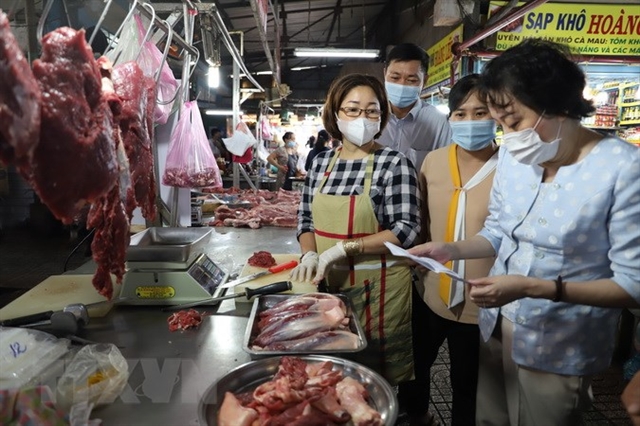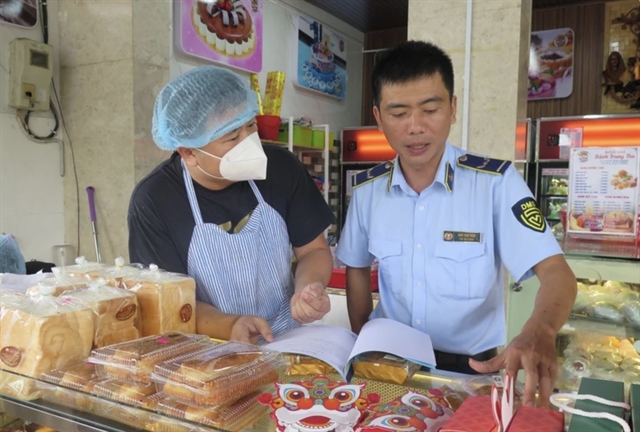 Society
Society

 |
| An authorised official checking mooncakes. VNA/VNS Photo |
HÀ NỘI – The Food Safety Department has urgently called for the traceability and recall of products that do not meet food safety standards during the upcoming Mid-Autumn Festival next month.
It also emphasised strict penalties for violations and the public disclosure of the names and addresses of the offending establishments.
According to the department, with the Mid-Autumn Festival approaching, there has been a sharp increase in the demand for sweets, especially mooncakes.
Alongside reputable businesses producing safe products, there are still some organisations and individuals secretly introducing illicit sweets into the market, with unclear origins.
To ensure food safety, prevent food poisoning, and protect consumer rights and health, the department issued document No. 1964/ATTP-NĐTT on strengthening food safety and hygiene measures during the Mid-Autumn Festival.
It was sent to the Office of the People's committees, health departments, and food safety management authority of provinces and cities requesting to direct relevant units to implement measures to ensure food safety.
The relevant agencies were asked to carry out inspections and checks on the compliance of food safety regulations by manufacturing, processing and trading establishments of mooncake, sweetmeats, beverage and traditional food.
Additionally, it is crucial to promptly trace and recall products that fail to meet food safety standards, strictly penalise violations and publicly disclose the names of establishments, addresses and types of products that violate regulations via mass media.
If any criminal signs are detected, the cases should be transferred to the police for handling according to the law.
The Food Safety Department urged units to actively cooperate with media agencies to strengthen communication, education, and information on food safety during the Mid-Autumn Festival.
Food production and trading establishments must comply with legal regulations on food safety, including requirements on facilities, equipment, knowledge, and practices of those directly involved in production, as well as regulations on the origin of food ingredients, product declarations, the use of colourings, flavourings, additives, food packaging and labelling.
Consumers should be guided on how to select, process, preserve and use food safely.
They should only purchase and use food and food additives with full labelling, clear origin and should not use food additives that are outside the permitted list, or use them incorrectly or in excessive amounts.
Local authorities have to direct their health units to prepare plans, standby forces, vehicles, materials and chemicals to be ready for emergency treatment of food poisoning cases as well as investigate food poisoning incidents, determine the causes, and take preventive measures to reduce the risks of food poisoning and foodborne diseases.
In the first six months of this year, there were 36 reported food poisoning cases nationwide, affecting 2,138 people and resulting in six deaths.
The Ministry of Health has repeatedly reminded provinces and cities to strictly handle and suspend operations of non-compliant establishments and thoroughly trace the origins of the products involved. VNS




